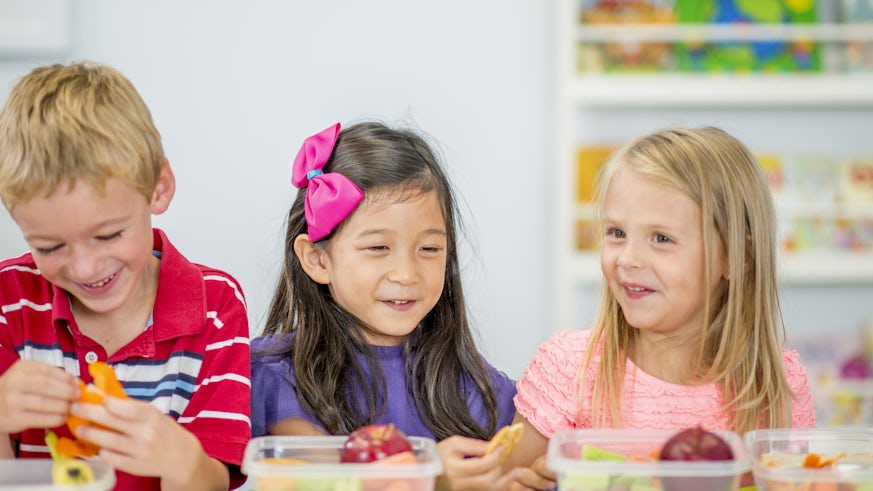Enriching school holidays
7 February 2017

A national school holiday ‘Food and Fun’ programme that aims to prevent children going hungry in the summer holidays is helping to reduce the impact of poverty and social deprivation according to an evaluation report by Cardiff University.
The research carried was out by Y Lab, a new public services innovation partnership between the University and Nesta, and is launched at an event in Cardiff today (8 February 2017).
The research found that Food and Fun clubs had positive impacts on children’s activity levels, diet, social isolation and opportunities for learning and engagement with schools. It showed that the children involved in the programme consumed a healthier and more balanced diet, and participated in more exercise or physical activity than they would have at home.
Food and Fun is run by the Welsh Local Government Association (WLGA) as part of the School Holiday Enrichment Programme (SHEP) Wales. Cllr Ali Thomas (Neath Port Talbot), WLGA Spokesperson for Education said: “The WLGA has welcomed the Welsh Government announcement that there will be future funding for this worthwhile and innovative programme and we will continue to work with local authorities and partner agencies to help them reach the children and families who would benefit most from the initiative.
“The results from the pilot scheme are impressive. At last year’s ten summer holiday evaluation sites, 323 children and their families benefited from this scheme, who may otherwise have gone hungry or might have been socially isolated. I would like to pay tribute to the staff and 49 partner agencies involved who made such a difference to these young people’s lives.
“The WLGA is pleased to be hosting the inaugural School Holiday Enrichment Programme (SHEP) Wales Event today to share the outcomes of the 2016 pilot and bring together stakeholders from across Wales to discuss the initial roll out in 2017.”
The research was undertaken to evaluate the cost of Food and Fun clubs, how many children and family members attended, and the impacts on children and parents’ health and wellbeing.
Dr Kelly Morgan, who was one of the lead researchers for Y Lab, and is based in the University's School of Social Sciences, said: “The Food and Fun club model is an innovative and cost-efficient multi-agency model that can be implemented across a range of school sites and local authorities in Wales to reduce the impact of poverty and social deprivation during the school holidays. Targeting families on a geographical basis appears to be an effective means of reaching and engaging deprived families while avoiding the labelling, stigma and unintended consequences associated with selecting individual families.”
Ten schools took part in the evaluation in 2016. The research findings showed the majority of children reported consuming more fruit and vegetables (67%), less sugary snacks (66%) and less sugary/fizzy drinks (81%) on the day of the club than at home. Data collected also showed that children were significantly more likely to achieve the daily recommendation of 60 minutes moderate to vigorous physical activity when attending the club (71%) compared to other non-club weekdays (48%).
Potential social and educational benefits were also found, with 75% of children reporting making new friends at holiday club, and parents and staff observing more positive attitudes to school among children attending.
School Holiday Enrichment Programme (SHEP) Wales is managed by the WLGA with future funding from the Welsh Government.